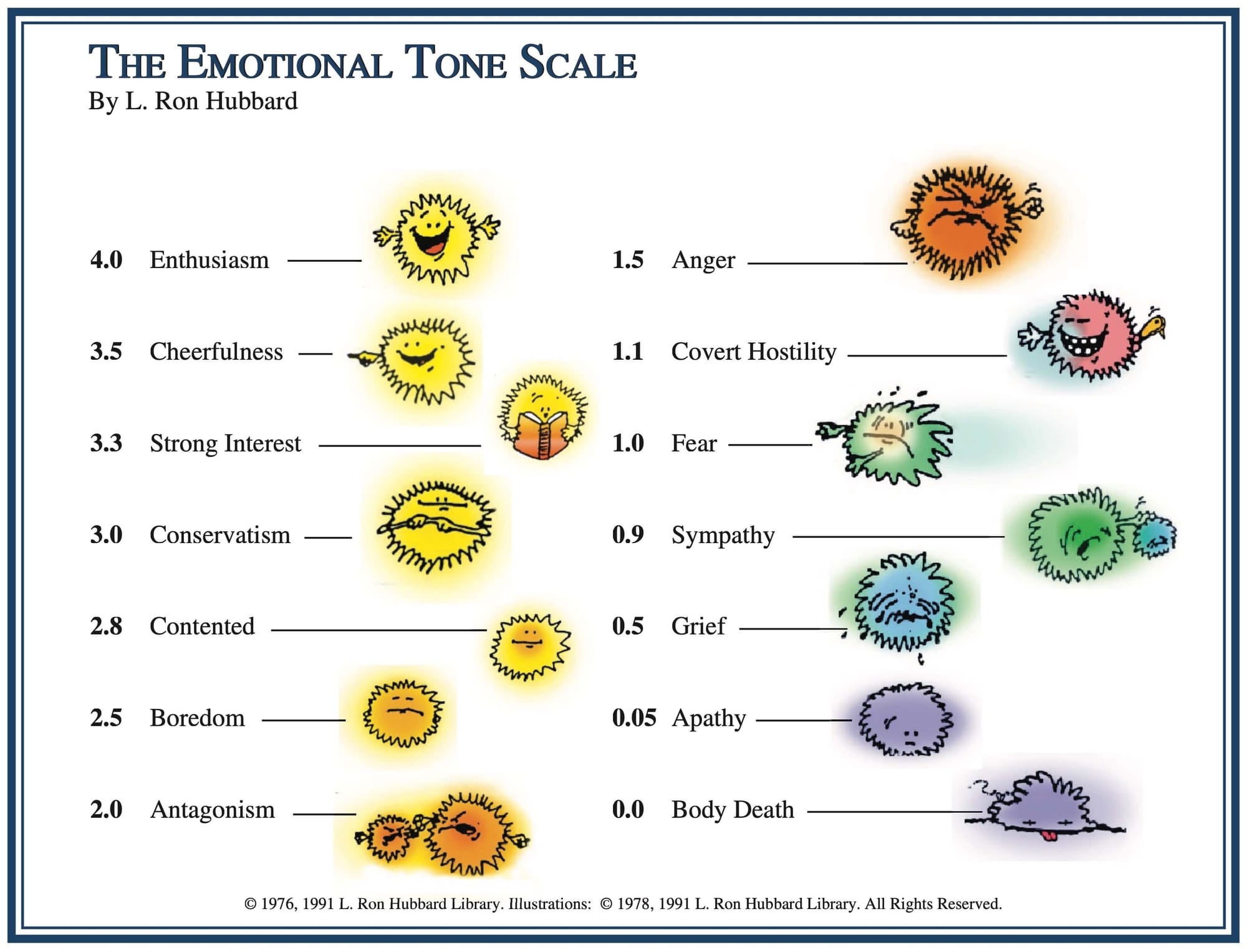How to Know Who You Can Trust

When you were a child, you trusted everyone. Can you say the same now?
Most of us have been lied to or deceived at some point. In today’s society, we try to protect ourselves from dishonesty using things like contracts, legal agreements, and even escrow services. These tools are meant to keep people honest, but are they enough?
Not always. Legal action is expensive, contracts can only cover so much, and accountability is often lacking. It feels like honesty is becoming rare, while deception is far too common.
Lies don’t just cost us money. They can damage relationships, leave us feeling betrayed, and take an emotional toll. Trying to guard yourself against lies feels impossible, like holding water in your hands. So, how can you avoid dishonest people and protect yourself?
The answer lies in understanding something called the Emotional Tone Scale.
The Tone Scale measures where a person sits emotionally, from positive to negative. At the top, you have emotions like enthusiasm, joy, and integrity. People who live at this level tend to be honest, reliable, and constructive. At the bottom, you have grief, apathy and death, and in between are various emotional states.
Each person tends to live at a certain level on this scale.

Generally, people who live above 2.0 on the scale—those who show emotions like cheerfulness or strong interest—are more likely to be trustworthy. They are productive, positive, and often seek to help others. On the other hand, those below 2.0—people who are frequently in anger, fear, apathy or covert hostility—tend to be more deceptive and harmful.
Take covert hostility as an example. This is the person who smiles to your face but secretly works against you. They pretend to care, but their actions reveal their true intent. This is dangerous because their dishonesty is hidden under a friendly surface.
Have you ever known a person who really meant well for you and wanted you to succeed and be happy, but every time you spoke you came away from the conversation wondering if you’re doing something wrong? Odds are good that this person is a chronic 1.1, covertly hostile individual.
They are by far the most dangerous people in society because their menacing is not obvious.
So how can you figure out where someone falls on the scale?
A quick way to gauge someone’s emotional tone is through the two-minute psychometry test. Pick a topic, like sports, and gradually take the conversation from positive emotions—like excitement or interest—to more negative ones—like frustration or anger. Pay attention to which part of the conversation they respond to most. Do they get more engaged with the positive or negative comments?
If they seem to light up and engage on the negative part of the conversation, they are lower on the Tone Scale and less trustworthy. If they respond mostly to the positive, you can likely trust them more as they are above 2.0 on the scale.
The higher someone is on the Tone Scale, the more you can trust them. The more positive they are emotionally, the more likely they are to be honest and reliable.
Surround yourself with these people, and you’ll find it easier to build trust and maintain positive relationships.
I myself did not discover the Emotional Tone Scale. L. Ron Hubbard did. He codified this scale for use in life. business and counseling. You can and should learn more about the Tone Scale and its myriad uses by doing this free online course.




Comments ()